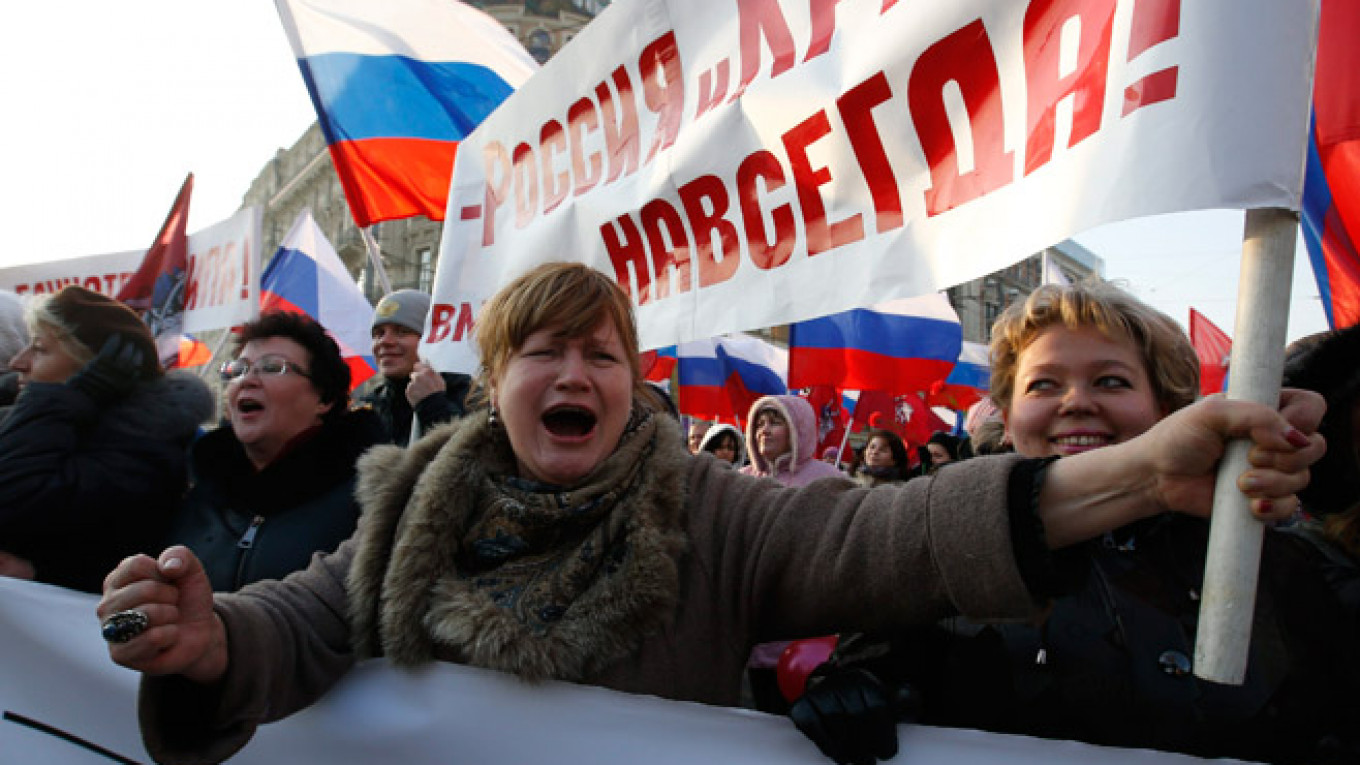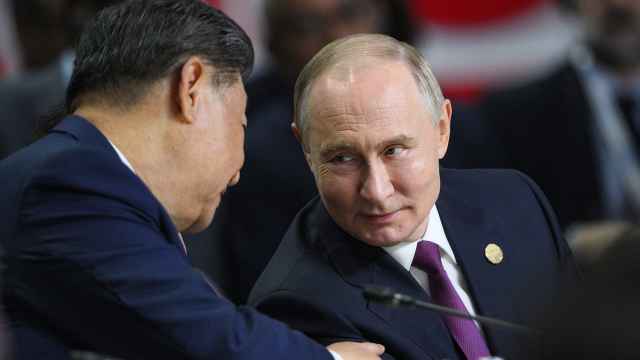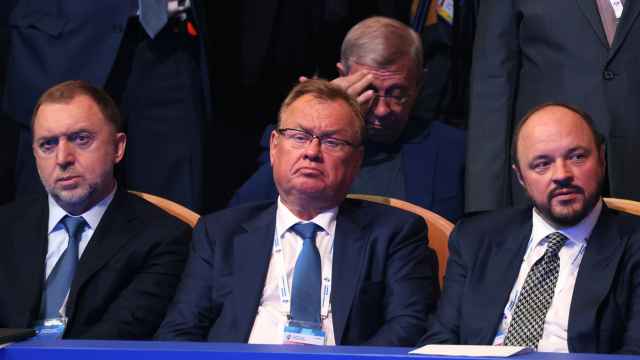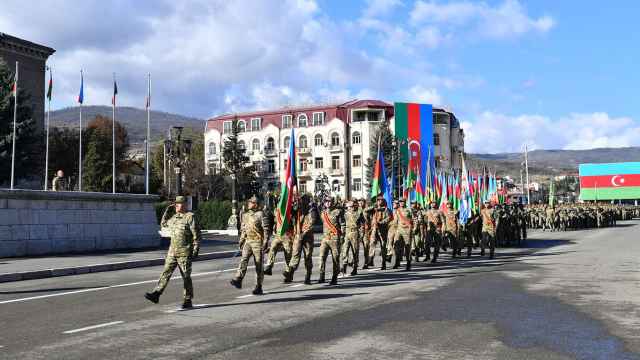The most serious ethno-political conflict in Russia today is not the intense xenophobia found in Moscow, St. Petersburg or even Chechnya, but the rising antagonism toward the Crimean Tatars.
Following Russia's sudden and swift annexation of the Crimean Peninsula in March, it soon became apparent that modern Russia lacks the institutions and mechanisms for integrating ethnic and cultural communities that have strong identities and traumatic histories. What's more, Moscow's usual methods of bribing, intimidating or forcibly relocating such peoples only exacerbate the conflict.
The Crimean Tatars are an ancient and indigenous people. They have absorbed many other peoples into their ranks and had their own state, the Crimean Khanate, for over 300 years from the mid-15th to the late 18th century. The Russian Empire under Catherine the Great later conquered Crimea, but the Crimean Tatars have always preserved their culture, language and exclusively Sunni Muslim religion.
In 1944, Soviet leader Josef Stalin ordered the deportation of all 191,000 Crimean Tatars — some 47,000 families — to Central Asia. After a long exile, the Crimean Tatars began returning in the late 1980s to their homeland, part of Ukraine since 1954. By the time of the Ukrainian census of 2001, their number reached a total of 245,000, accounting for more than 10 percent of Crimea's population.
Prior to the referendum on March 16 to unite with Russia, the Mejlis — the executive body of the Qurultay, the supreme congress of the Crimean Tatars — decided to boycott the referendum.
The vast majority of Crimean Tatars followed the decision of the Mejlis and boycotted the referendum, according to Mustafa Dzhemilev, the legendary leader of the Crimean Tatars and renowned Soviet-era dissident.
Similarly, most Crimean Tatars did not take part in the local and regional elections held on the peninsula on Sept. 14. Thus the Crimean Tatar community did not support Russia's annexation of the peninsula.
The refusal by most Crimean Tatars and their leaders to accept the peninsula's annexation has led to a serious conflict with the new pro-Moscow government there. The Russian authorities have denied the right of both Crimean Tatar leaders — Dzhemilev and current Mejlis head Refat Chubarov — to return to their homeland for the next five years. They now carry out their duties in absentia from Kiev.
Chubarov, who is now prevented from seeing his loved ones, must meet with the Mejlis through Skype. Russian prosecutors justified the re-entry ban with the argument that both leaders engaged in "extremist activities." Now Chubarov will appeal that ban to the European Court of Human Rights in Strasbourg.
The Russian authorities have even gone so far as to ban all books by Dzhemilev on the territory of Crimea. Dzhemilev spent many years in Soviet labor camps and prisons for defending the rights of his people and during that time won support from such august personages as Soviet dissident Andrei Sakharov.
Thousands of Crimean Tatars traditionally hold a rally every May 18 in the center of Simferopol to commemorate the deportation of their people, but this year, on the 70th anniversary of that event, the Russian authorities banned the gathering on the ridiculous pretext that "it is dangerous." Such a prohibition is an insult to all Crimean Tatars, for whom that deportation was the worst tragedy in their history.
The Crimean Tatars face pressure on all fronts.
On Sept. 16, men carrying automatic weapons surrounded the building where the Mejlis meets in Simferopol. In late September, government forces effectively seized the building, forcing the Mejlis members out onto the street. They also confiscated another building in Bakhchysarai, the ancient Crimean Tatar capital.
The Interior Ministry's "E" division for combating extremism, as well as government prosecutors, riot police and so-called "self-defense forces" have carried out numerous searches and raids of Crimean Tatar mosques, madrasah religious schools, community centers, businesses and private residences. They are also applying intense pressure on ATP, the only independent Crimean Tatar television channel, and have compelled a number of activists, journalists and bloggers to quit Crimea altogether.
Council of Europe's commissioner for human rights, Nils Muiznieks, who has visited Crimea, details all of these numerous violations in a report he released on Oct. 27.
That report gives particular attention to killings, abductions and disappearances in Crimea. On March 3, three men in military uniform kidnapped Reshat Ametov, and his mutilated body was later found on March 16 in the village of Zemlyanichnoye. Activists Leonid Korzh, Seiran Zinedinov and Timur Shaimardanov disappeared in late May.
On Sept. 27, men in military uniforms abducted Islyama Dzhepparova and Dzhevdeta Islyamova on the highway between Simferopol and Feodosia and drove away with them to an unknown destination. Criminal cases are under way for each of these incidents, but the authorities have not yet found either the kidnappers or their victims.
Now Mejlis head Chubarov reports that Moscow is seeking to implement a "Chechen scenario" in Crimea by finding someone among the Crimean Tatars who, like Chechen leader and strongman Ramzan Kadyrov, could use Russian money and power to consolidate the recalcitrant Crimean Tatar community and ensure its loyalty to Moscow.
If this is the case, it is bad news indeed. The Soviet Union collapsed in no small part because of its inability to peacefully integrate diverse peoples. It preferred using repression and the bribery of ethnic leaders to granting those people their rights, or even more, giving them broad participation in a democratic dialogue. The future of the Crimean Tatars might serve as a bellwether for the future of Russia in the same way.
Vladimir Ryzhkov, a State Duma deputy from 1993 to 2007, is a political analyst.
A Message from The Moscow Times:
Dear readers,
We are facing unprecedented challenges. Russia's Prosecutor General's Office has designated The Moscow Times as an "undesirable" organization, criminalizing our work and putting our staff at risk of prosecution. This follows our earlier unjust labeling as a "foreign agent."
These actions are direct attempts to silence independent journalism in Russia. The authorities claim our work "discredits the decisions of the Russian leadership." We see things differently: we strive to provide accurate, unbiased reporting on Russia.
We, the journalists of The Moscow Times, refuse to be silenced. But to continue our work, we need your help.
Your support, no matter how small, makes a world of difference. If you can, please support us monthly starting from just $2. It's quick to set up, and every contribution makes a significant impact.
By supporting The Moscow Times, you're defending open, independent journalism in the face of repression. Thank you for standing with us.
Remind me later.








